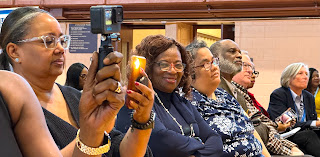Understanding the MultiCare Health System Agreement: What It Means for Individuals with Disabilities and Providers
At Disability Connection Midsouth, our mission is to bridge the gap between individuals with disabilities and the resources they need to be independent. A recent agreement between the U.S. Department of Health and Human Services (HHS) and MultiCare Health System highlights critical issues in healthcare accessibility, offering valuable lessons for individuals and providers alike. This agreement underscores the importance of upholding civil rights and ensuring that no one is left without medical care.
What Happened?
MultiCare Health System, a large healthcare provider in Washington State, entered into a resolution agreement with HHS following allegations that it failed to provide effective communication for people who are deaf or hard of hearing. The complaints arose from instances where patients were not offered appropriate auxiliary aids and services, such as sign language interpreters, which are essential for equal access to healthcare.
The investigation revealed a gap in compliance with Section 504 of the Rehabilitation Act and the Americans with Disabilities Act (ADA), both of which require healthcare providers to make reasonable accommodations to meet the needs of individuals with disabilities.
Key Terms of the Agreement
The agreement is a roadmap for how healthcare providers can better serve individuals with disabilities. It includes several commitments by MultiCare, such as:
Policy Updates: MultiCare must revise its policies to ensure compliance with disability rights laws. This includes specifying procedures for assessing and providing auxiliary aids and services.
Staff Training: All relevant staff, including front-line workers and medical professionals, will receive training on effective communication with patients who are deaf or hard of hearing.
Patient Rights Notification: Patients must be informed of their rights to auxiliary aids and services and how to request them.
Monitoring and Reporting: MultiCare agreed to submit regular reports to HHS to demonstrate its compliance with the agreement.
What This Means for Individuals with Disabilities
If you or someone you care for has a disability, this agreement serves as a reminder of your rights under federal law:
Access to Effective Communication: Whether it’s a sign language interpreter, captioning services, or other aids, healthcare providers are obligated to ensure you can communicate effectively during your visit.
Advocacy Tools: If you feel your rights have been violated, you can file a complaint with HHS or your state’s human rights commission. The MultiCare agreement demonstrates that action can lead to meaningful change.
Empowered Decision-Making: Know that you have the right to fully understand your healthcare options. Providers are required to make reasonable accommodations to support your decision-making.
To make a complaint: https://www.hhs.gov/civil-rights/filing-a-complaint/index.html
What This Means for Providers
For healthcare providers, this agreement is a clear reminder to prioritize accessibility. Key takeaways include:
Proactive Policies: Review and update policies to align with the ADA and Section 504. Ensure that procedures for requesting accommodations are clearly defined and accessible to all.
Invest in Training: Educate your staff about disability rights and effective communication practices. Real-world scenarios, like those highlighted in the MultiCare case, can serve as powerful teaching tools.
Foster Inclusive Environments: Create a culture where patients feel comfortable requesting accommodations. Include information about disability rights prominently in patient materials.
Moving Forward: Building a More Inclusive Healthcare System
The MultiCare Health System agreement is a step in the right direction, but there’s more work to be done. At Disability Connection Midsouth, we encourage individuals with disabilities to advocate for their rights and for providers to embrace practices that promote inclusion.
By working together, we can ensure that everyone receives the quality care they deserve. Let’s use this agreement as a catalyst for meaningful change, ensuring that healthcare systems across the country reflect the principles of equity and accessibility.
For more resources, guidance, or support, connect with us at Disability Connection. Together, we can create a community that values and respects the rights of all.









